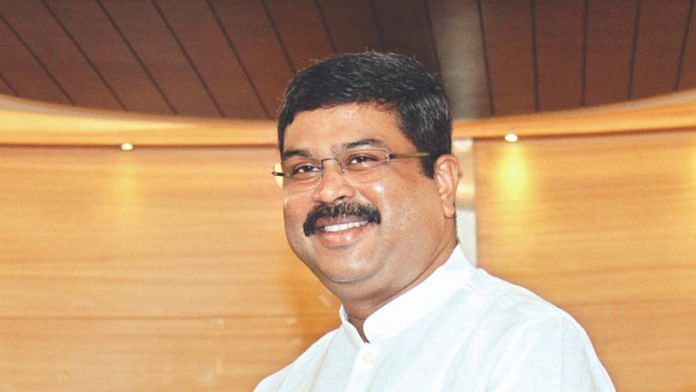So, we have a new education minister. Thankfully, no longer the Human Resource Development minister. Thankfully, no longer Ramesh Pokhriyal. Shall we also expect a new thrust on the real issues of education?
After health and economy, education is the third biggest casualty of the pandemic. Sadly, only the visible aspects of the educational crisis get any political attention. Media reports suggest that the new education minister has started attending to some of these. On the very first day, he participated in a pre-scheduled conference of the directors and vice chancellors of some of the leading higher education institutions. The calendar of JEE and NEET has received his attention. He has also made the mandatory noises about implementing the New Education Policy.
But that is not where the real crisis in the educational sector lies. It lies in the massive, though invisible, educational loss that schoolchildren have suffered over the last one year. So far, the minister or the ministry has not even acknowledged it. In one sense, the problem is not new. Ever since the days of Kapil Sibal, Union education ministers have behaved as if they are ‘higher education’ ministers. An obsession with IITs, IIMs, central universities, institutions of national importance, and on entrance tests to the coveted medical, engineering and management institutions has preoccupied the ministry for well over a decade now. This is accompanied by occasional ideological battles on secularism or Indianisation, and so on. The problem has been compounded this time. School education, increasingly on the fringe of policy attention, has slipped further from public discourse. The pandemic has accentuated the process of ‘educide’, slow but sure murder of educational opportunities, that has been happening for quite some time. This must occupy the minister’s attention.
Also read: Jagan Reddy is giving Andhra Pradesh children something better than gold — English education
Reading recommendation for the new minister
The new minister, Dharmendra Pradhan, could begin by reading some recent media reports. A report from Haryana recently brought out an alarming drop in the number of students that have enrolled in private schools this year. As many as 12.5 lakh students did not enroll in private schools this year, a drop of more than 40 per cent. The number dropped from 29.8 lakh last year to 17.3 lakh this year. We must not assume that all or even most of these students have dropped out from schooling altogether. In all probability, most of these students have shifted to government schools to avoid the high fee of private schools. But it is reasonable to assume that a small fraction of this number, mostly girls, may simply not go back to any school. This is also true of government schools where a sharp decline in family income is likely to force many boys to enter the labour force and many girls to take to domestic duties. Many other media reports confirm this trend.
Or, if he has more time, the minister could read up the Annual Status of Education Report 2020. This report on quality of school education in rural India focused, in 2020, on the impact of Covid, and documented the extent of educational losses due to the lockdown in the first wave. It records that while most students had textbooks, there was little educational support available to them during the year. While smartphones have spread their reach in rural India, 42 per cent families of schoolgoing children in rural India still do not have a smartphone. The proportion was 55 per cent for the poorer families. Assuming that they did have an electronic device, the problem also lies with availability of reading material. Only 35 per cent students received any reading or support material from their schools. The proportion was 40 per cent for private schools. The additional material was delivered almost entirely through WhatsApp. So, from ‘WhatsApp University’, we have now moved on to ‘WhatsApp schools’.
Also read: Addition of Yogi, Ramdev’s books in syllabus part of continued attack on academic spaces
Knowing the priority areas
Many other reports have confirmed other widespread effects of the pandemic on school education: higher dropout from schools, shift from private to government schools, increase in child labour for boys and domestic work for girls and adverse effect on children’s nutrition and health due to closure of mid-day meals. In other words, much of the strides in school education over the last one-and-a half decade or more may have been wiped out over the last year and a half. This is not just a loss in the quality of education, it is also de-skilling of our labour force, something the minister should be concerned about as he also holds the portfolio of skill development. The challenge in higher education may look different but it has similar characteristics: high dropout from college or university, very poor access to educational materials, especially for students from disadvantaged backgrounds, and lack of access to teachers.
Here, then, is my appeal to the education minister: I know you wish to sound excited about the new education policy. I understand that there might be pressure to increase saffron ideology in the syllabi. I can guess the pressure on you to manage entrance tests that children from ‘middle class’ are invested in. Attend to these by all means, as you have to. But can you please put all these on the backburner and attend, first of all, to the real and silent crisis of school education?
Yogendra Yadav is the national president of Swaraj India. He tweets @_YogendraYadav. Views are personal.
(Edited by Anurag Chaubey)



